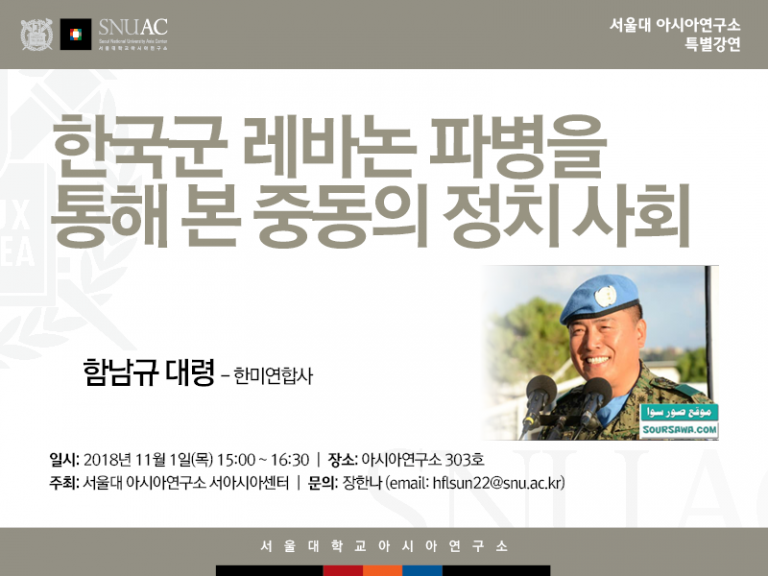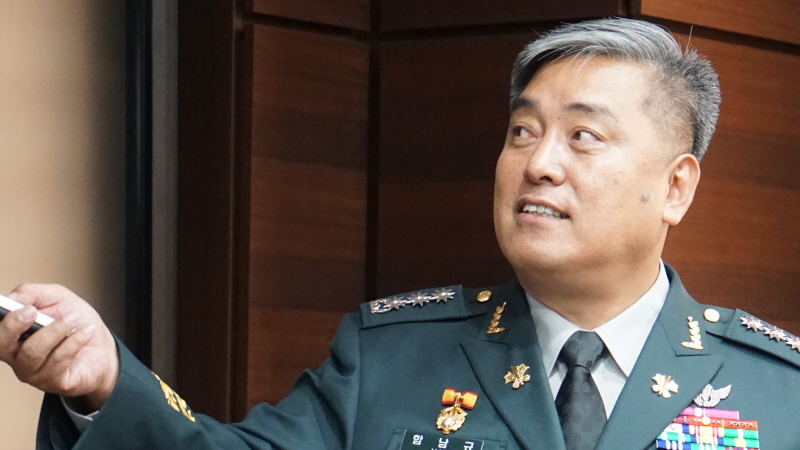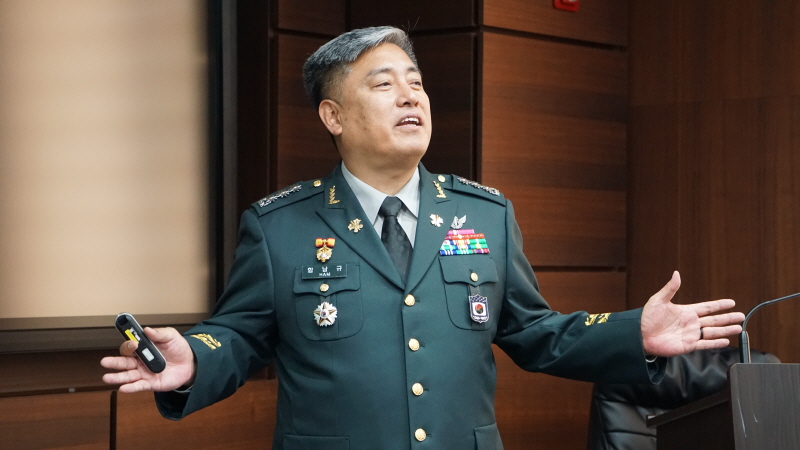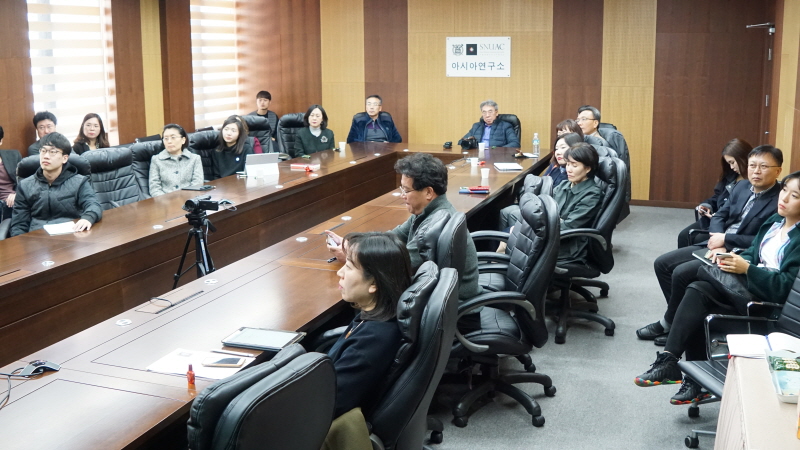Reading Middle East Asia’s Sociopolitics through the Dispatch of Korean Troops to Lebanon

Special Lecture
- Date & Time: Thursday, 1 November, 2018, 15:00-16:30
- Place: International Conference Room(#303), SNUAC(Bldg#101)
- Speaker: Colonel Nam-Gyu Ham (Combined Forces Command)
- Host: SNUAC West Asia Center
- Inquiry: Hanna Jang / hflsun22@snu.ac.kr
Abstract
SNUAC West Asia Center’s fifth colloquium of 2018 invites Colonel Nam-Gyu Ham and his seminar will be on “Reading Middle East Asia’s Sociopolitics through the Dispatch of Korean Troops to Lebanon.” Colonel Ham will present on the socio-political issues in the Middle East based on his experiences as a member of UNIFIL which encompasses all the components of the Middle Eastern disputes. This event will provide opportunities for understanding the Israeli disputes, politically conflicting aspects of the Lebanese mosaic society, and the conflicting state between the Shia belt and Sunni belt. Furthermore, the successful cases of Korean deployment activities will be introduced as well as the Muslim lifestyle, Middle Eastern socio-cultural characteristics including wedding and funeral, and overall the general Muslim consciousness will be discussed through the perspective of a commander of the deployment.
Review



Colonel Nam-Gyu Ham from the ROK-US Combined Forces Command described his firsthand experiences in the Middle East at the fifth colloquium held by SNUAC West Asia Center. The colloquium began with the present state of the Middle East that is mainly acknowledged to be a place of great regional conflicts with topics such as ‘Islam’ and ‘Halal’ taking much place in the general public’s fragmented understanding of the Middle Eastern society. Colonel Nam-Gyu Ham examined how ‘religion’ is much more than a religious community but is connected to the social welfare system in Middle Eastern societies comprised of various sects based on diverse ethnic groups. The resulting religious conflicts as well as the current state of affairs relating to Korean deployment in Lebanon were also mentioned in this colloquium.
